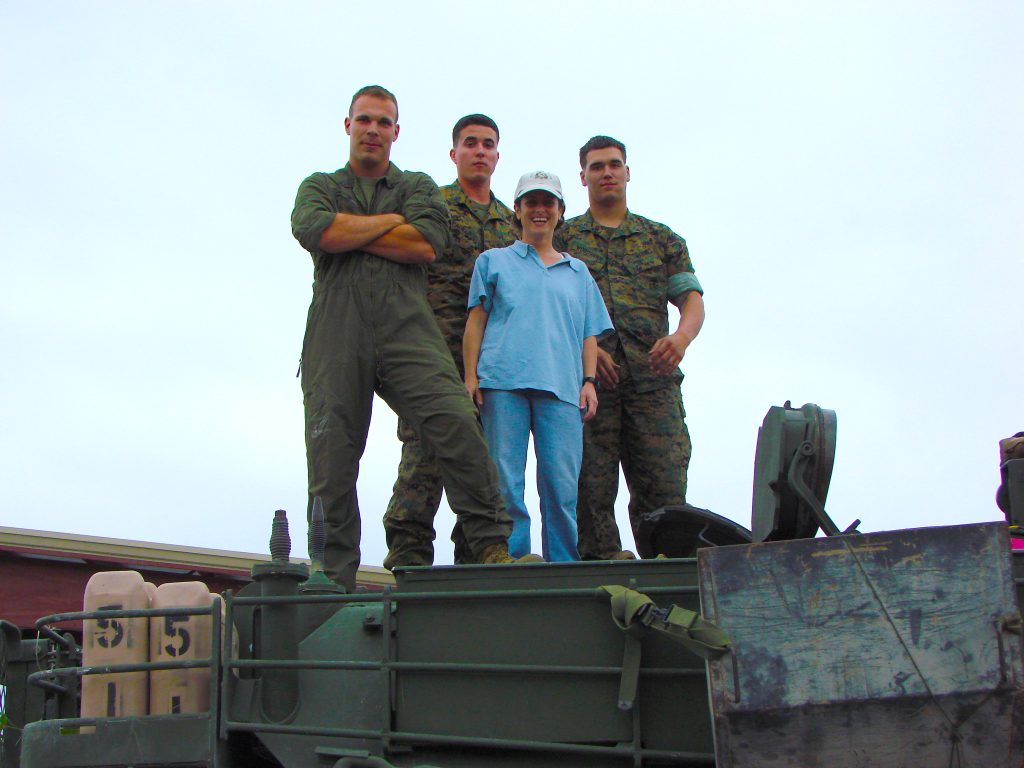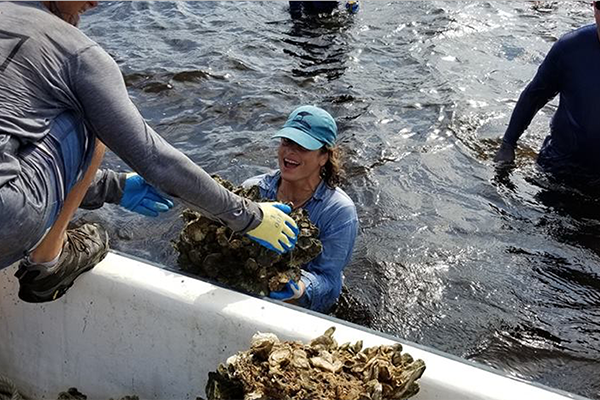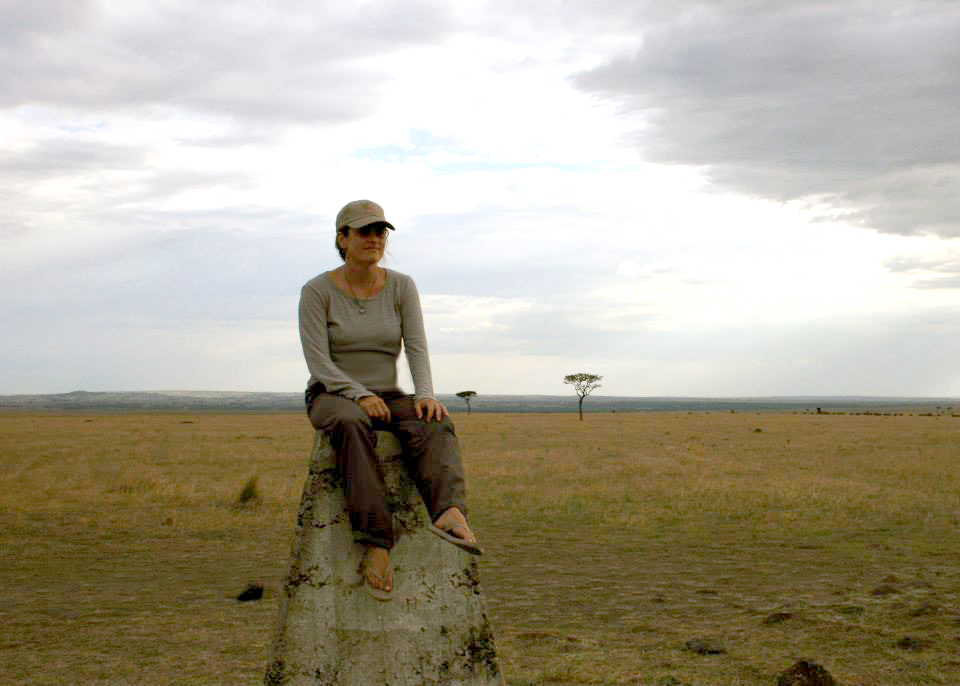Ready for a new challenge,’ says Cohen, IE’s recently appointed associate director
November 4, 2018
Susan Cohen is a big thinker. She has made a career of convening other big thinkers to solve complicated environmental problems from working at the U.S. Forest Service to the U.S. Navy. Now, as the newly appointed associate director for the UNC Institute for the Environment, Cohen will bring her experience as a convener to help IE launch an environmental convergence at the University of North Carolina at Chapel Hill.
“We are extremely excited to have Dr. Cohen join us at IE,” says Michael Piehler, director of the UNC Institute for the Environment and a joint professor in marine sciences and environmental sciences and engineering at UNC-Chapel Hill. “She brings a sustained record of excellence developing concepts, building teams and leading large interdisciplinary environmental research programs. IE and the University as a whole will benefit from the capacity she brings. I am looking forward to IE perusing exciting new research under her leadership.”
For the last 10 years, Cohen managed a team of more than 60 investigators on a multi-disciplinary, multi-institutional team of researchers and military managers to monitor and understand coastal and estuarine ecosystems at Camp Lejeune, the Marine Corps’ premiere amphibious training environment. Among many charges, Cohen and the team spent a great deal of time understanding how the coastal barrier islands around the base are evolving over time and then predicting how they will look in the future so the Marine Corps can be proactive in how they manage that resource long term.
“IE has a very strong foundation and there are endless possibilities here,” Cohen says. “There a are a lot of really smart people at IE, I learned that pretty quickly. I am excited to learn from everyone and bring a new perspective that is meaningful and important.”
Cohen will be responsible for bringing diverse teams together and developing new avenues of research in addition to building off of the existing research enterprise. Her work will incorporate an educational and community engagement component as well, in line with the mission of IE. Cohen also will assist in private fundraising efforts.
“We need to make those connections because environmental problems are complicated,” she says. “They require that interdisciplinary approach. Lots of different people thinking about lots of different parts and then bringing it together. I think that is how you have big impact in environmental work.”

Despite growing up in urban Atlanta, Cohen always harbored an affection for being in nature. As a kid and young adult, she spent a lot of time outside. But, her route to a career in the environment took a circuitous path. She majored in anthropology at the University of Massachusetts at Amherst and nourished her love of the outdoors by frequently camping, kayaking and just spending time outside.
“At the time, I didn’t know you could have a job doing work in the environment,” Cohen says. “After undergrad, I landed a couple of interesting jobs with the U.S. Park Service doing back country work and I realized this is my field.”
Cohen worked in the Guadalupe National Park in west Texas where her job was to hike the entire border of the park, which was surveyed every 5 years. Experiencing the rugged terrain and spending her days in the forest cemented her interest in pursuing a career working outdoors.
“That is when I started to realize that I can do what I love and make a living at it. It was a great moment,” she says.
When the work ended, Cohen joined a reforestation project with the Peace Corps in the Dominican Republic. She spent 2.5 years in a community where there was no running water or electricity and helped manage the reforestation of a river community.
“I realized that environmental work isn’t just about the environment,” Cohen says. “It is people centered as well. And I like that part of it, too. I liked the organizing of it, the bringing of people together, figuring out how to start a project. Right from there, I knew I had to get more information. I knew I was missing some pieces if I wanted to work on more projects.”
This light bulb moment for Cohen led her to pursue a master’s degree in forestry at N.C. State University. In graduate school, she delved into learning about plant and fire adapted communities and fell in love with the longleaf pine.
Upon completion of her degree, Cohen was offered a position with the U.S. Forest Service Southern Research Station in Research Triangle Park. She started out as a forestry technician, learning how to use equipment, contributing to research projects, spending time in the field and in the lab, and really experiencing the breadth of a what it takes to do a research project.
Cohen quickly worked her way up in the agency and started doing her own projects and organizing various efforts. With the support of her boss and mentor, she began a Ph.D. program in forestry at N.C. State University. At the same time, she received her first grant to study longleaf pine systems. Her work took her to Marine Corps Base Camp Lejeune and other forests like the Croatan National Forest and N.C. State University’s Hofmann Forest.
When she finished her doctoral degree, she was encouraged to apply for a job with the U.S. Navy coordinating a new program called the Defense Coastal Estuarine Research Program (DCERP) for the Department of Defense at Camp Lejeune. Cohen eagerly accepted the opportunity to move to the coast.
“The great thing about the DCERP project was there was a really nice forestry component that suited me to a T, but it forced me out of my comfort zone to learn about estuaries, wetlands and coastal barrier islands,” she says.
The DCERP team was awarded the Strategic Environmental Research and Development (SERDP) Project of the Year Award in the area of resource conservation and climate change in 2012. SERDP is the U.S. Department of Defense’s environmental science and technology program, planned and executed in partnership with U.S. Department of Energy and U.S. Environmental Protection Agency, with participation by numerous other federal and non-federal organizations.
Outside of work, Cohen loves to tap dance and travel. She has traveled all over the world from Borneo to Tanzania and many places in between.
“I’ve always had a travel bug,” she says. “But at the end of the day, I love the coastal plain of North Carolina.”

